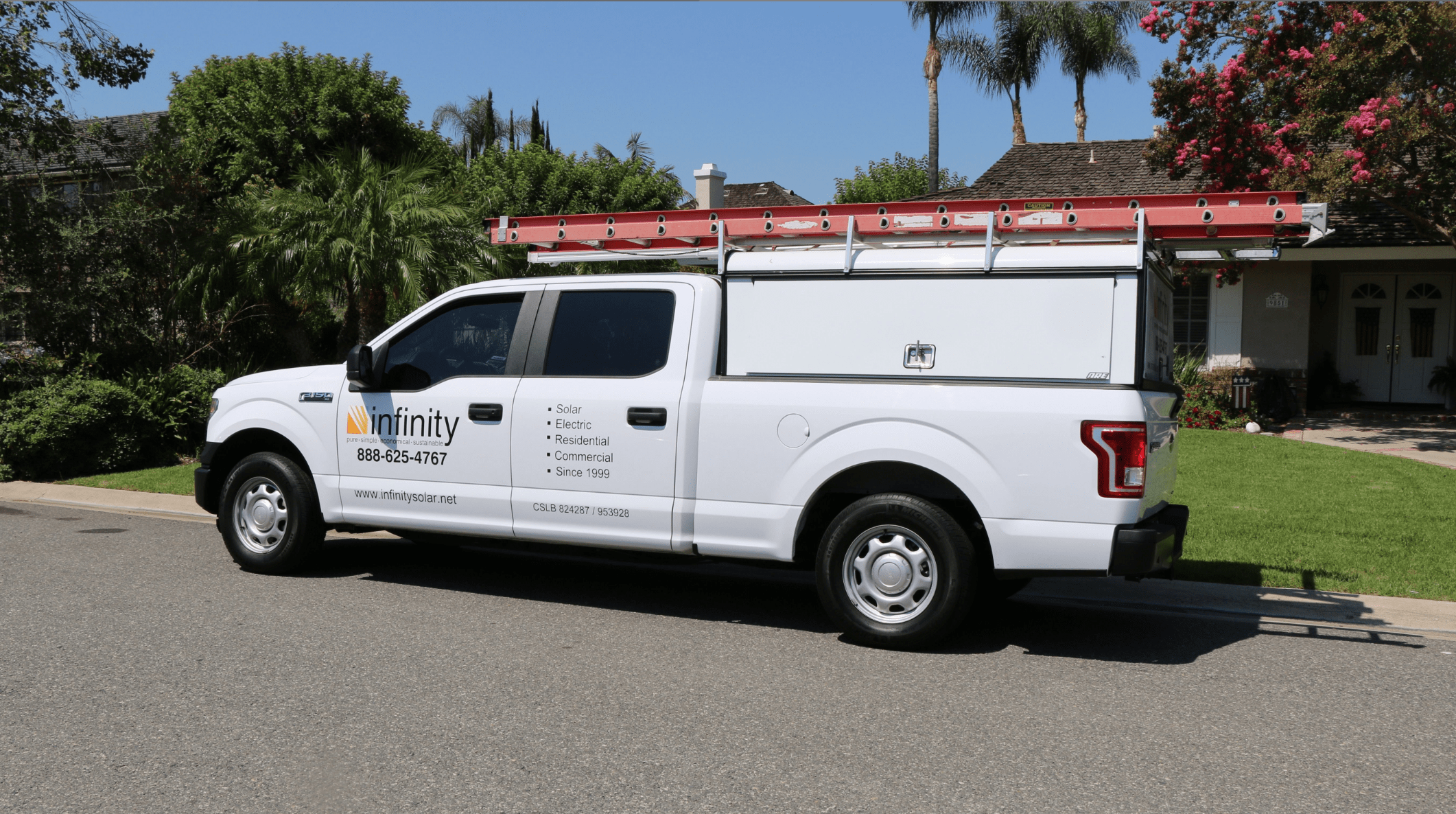You’re ready to make the jump and go solar, but you’re worried about the various solar panel warranties out there.
We understand! After all, it’s important to have a full knowledge of the solar warranty landscape.
Do you know the difference between a solar performance guarantee and a workmanship warranty?
You should, and these four key consideration should clear up any confusion.
1. Demand the best warranty available
Simply stated: ask for the best warranty in the industry! Fortunately, Infinity Solar offers this!
Solar panels generally require minimal maintenance and rarely break. System components go
through rigorous industry testing to ensure they can hold up to severe weather and other damaging situations. That’s why reputable manufacturers, like Panasonic, offer long-term warranties of 20
years or more because of the proven durability of a module’s internal components.
An experienced installer, like Infinity Solar, Inc of Orange, with a proven track record and solid references is your first line of defense. We will be your champion through every phase of ownership, both pre- and post-installation.
2. Understand these warranty types
Knowing the difference between a performance warranty and a workmanship warranty is crucial. They’re equally important and should be included in your warranty coverage, yet provide different guarantees.
Performance guarantee
Solar panels with a strong performance guarantee increase your home’s value and make a
smart investment.
A performance warranty is issued by the panel manufacturer and covers product effectiveness.
Is it producing the amount of solar power you were promised? This type of warranty takes into
consideration the slight decrease in a panel’s power production value over time, generally between 0.25 and 0.5 percent per year.
Standard performance warranties cover panel performance for up to 25 years, but most systems work efficiently and produce free electricity long after your warranty expires. The numbers are similar industry-wide, so run from a performance warranty with limited coverage.
Product workmanship warranty
In addition to the performance warranty, leading manufacturers also offer a warranty on product
workmanship. This type of warranty ensures that all components were tested before installation
and modules are, and will remain, free from defects. Some top-name manufacturers such as
Panasonic, offer excellent product workmanship warranties that cover you for up to 25 years.
Service workmanship warranty
Solar panels also come with a workmanship warranty offered by the contractor who installs the
system. A typical workmanship warranty from a reputable certified installer guarantees a
finished project with a service workmanship warranty for at least 10 years after installation.
If your panels develop problems due to faulty installation, your service workmanship warranty
covers the cost of repairs or replacement.
3. Can your warranty be voided?
Without professional installation, a solar panel warranty can become void. DIY installations or
work performed by a contractor who lacks industry certification can nullify a performance
warranty. Bringing in a company other than the original installer for maintenance or repairs may
void both the performance and workmanship warranty.
Failing to properly maintain your solar panels can also cause warranty problems. For example, if
trees in your yard block the sun from reaching the panels, failure to keep branches trimmed
back can affect your performance warranty. Remember, open access to the sun’s rays is
essential to optimal solar panel performance.
4. Homeowners insurance coverage for solar panels
According to the U.S. Department of Energy National Renewable Energy Lab, most reputable
insurance companies can easily modify policies to cover solar panels.Homeowners insurance typically covers a range of solar panel damages including those caused
by:
• Fire and water
• Ice and snow
• Wind, hail and lightning
• Falling objects and explosions
• Vehicle and aircraft
• Theft and vandalism
Always check with your insurance agent about solar panel coverage available through your
homeowners policy.
